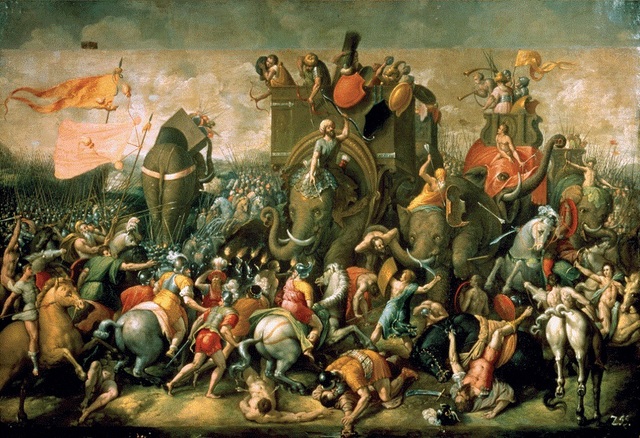
/ancient-ruins-of-carthage-157508883-589ced2f5f9b58819c7070ed.jpg)
They then modified their ships to turn sea battles into land battles. They borrowed ship designs from their Italian Greek allies, and probably employed them as rowers as well. But they created several large fleets when they saw it was necessary. The Romans were at a disadvantage because they had no navy. In the first war, most of the fighting took place on the sea around Sicily. So, by 275 BC the Romans controlled all of Italy. The Romans agreed to provide that assistance and fought against the king, named Pyrrhus, until 275 when they not only defeated that king but essentially brought all of southern Italy under their influence. the Romans received an appeal from some of the old Greek cities in southern Italy to assist them in resisting one of the lesser Hellenistic kingdoms, that of Epirus. By 350 BC the Romans were able to defeat the Gauls and establish their authority over northern Italy. Tribes of Celts – called Gauls – began to raid into Central Italy, and the Romans organized resistance among the other Italian cities to these raids. In the 390s another threat appeared, this time from the north. What this means is that Roman settlements are now farther away from Rome proper, and they have to be protected as well – which means more expansion. In other words, the Roman citizens would receive land, settle down, and form communities of their own or intermarry with the locals. And to make sure that they would not be threatened again, Rome would settle some of her own citizens among these people. These tribes or these other cities raided Rome, and Roman soldiers would go out and try to conquer them. Basically they did so to protect themselves. From 500-400 Rome fought primarily against hill tribes and nearby cities in Central Italy. Rome’s earliest conquests can be neatly divided into three parts - the conquest of central Italy, the conquest of northern italy, and the conquest of southern Italy. Hence, the unwritten assumption of Roman Foreign policy became “every neighbor is yet another potential threat.” As Rome expanded in Italy, she bumped into yet another quarrelsome neighbor that wanted her land. Romans were used to viewing their “next-door neighbors” as potential threats to the security of the Republic. And conditions were such that reasons could usually be found.Īnother important reason for Roman expansion is also related to the frequency of warfare in the early period of Rome’s development. Thus, the Romans were always ready and even eager to fight, if they were given any reason to do so by some other state. They received land and a share in the spoils of war. Even common soldiers earned great prestige when they had fought in an important Roman victory. He and his relatives would find it easier to win election to offices in the future and would be given greater military responsibilities. Thus, one major benefit of expansion was glory! If a consul won a great battle his prestige increased.

In order to acquire those virtues, men needed to fight wars. Roman virtues were warrior virtues that were appropriate to farmers and warriors. So, war became a regular feature of Roman life at a very early stage in its development. Most of these states needed land, and they could only get it by taking it from their neighbors. There were literally hundreds of small, independent states in Italy, all competing with one another for limited resources. Conditions in Italy in the Early Republic made it almost impossible for Rome or any other state to avoid war. The causes of expansion were more complex than simply wars for land. Roman politicians knew that they could relieve population pressures at Rome by fighting to gain more land, so political leaders, who were also, you remember, military leaders actively sought wars.īut economic motives weren’t the only ones. So, Roman settlements had to be in Italy, and that meant that they had to take land away from some other state to achieve that goal. They were not seafarers, so they couldn’t solve the problems of land shortage through colonization or trade like, say the Athenians. Rome seldom had enough land to provide for all of her citizens. In the early period of Rome’s development the most important spoils that Romans took from their enemies was land. Romans, like other ancient peoples took spoils from their defeated enemies.


 0 kommentar(er)
0 kommentar(er)
